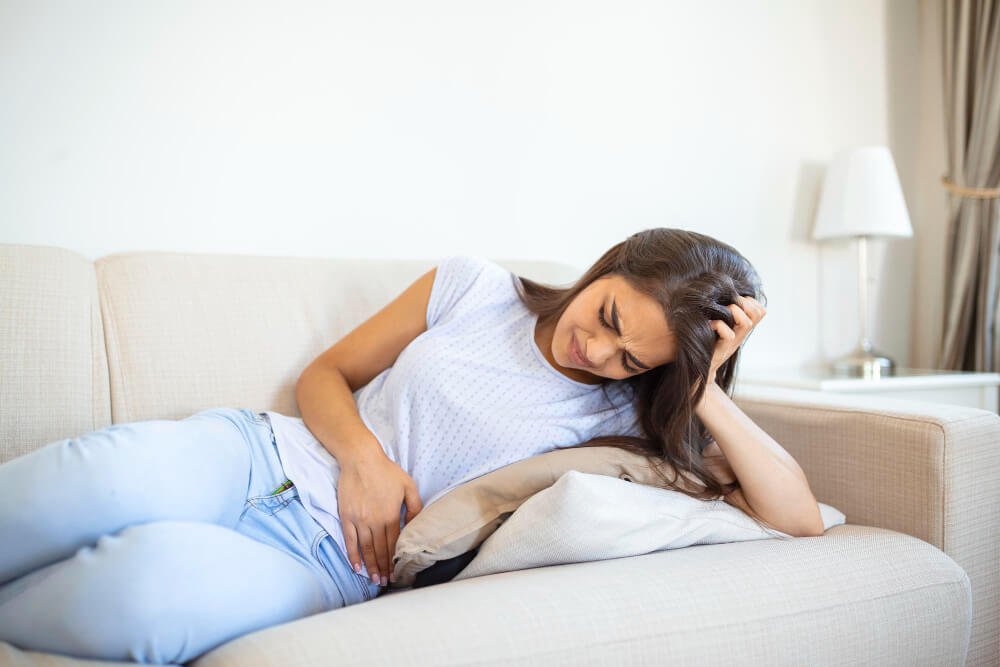
Endometriosis is a common yet underdiagnosed condition affecting millions of women globally. Due to misinformation and lack of awareness, it often goes undiagnosed for years, leading to unnecessary pain and complications. Let’s dive into the top signs of endometriosis, how it affects your health, and what you can do if you suspect you have it.
Table of Contents
What is Endometriosis?
Endometriosis is a condition in which tissue resembling the uterine lining (endometrium) begins to grow in areas outside the uterus. This tissue reacts to hormonal fluctuations, often causing inflammation, pain, and the formation of scar tissue. It can affect various organs, including the ovaries, fallopian tubes, and intestines.
Common Misconceptions About Endometriosis
There’s a significant amount of misinformation surrounding endometriosis, which leads to delays in diagnosis. Some common myths include:
- Myth: It’s just a bad period.
- Fact: While endometriosis often causes painful periods, the condition can cause other symptoms beyond menstruation.
- Myth: Pregnancy cures endometriosis.
- Fact: While pregnancy may alleviate symptoms for some women, it is not a cure.
- Myth: Only older women get endometriosis.
- Fact: Endometriosis can affect women of any age, even teenagers.
Top 5 Signs You May Have Endometriosis
- Chronic Pelvic Pain: Persistent pelvic pain is a hallmark sign of endometriosis. This pain may worsen during menstruation but can occur at any time of the month.
- Painful Periods (Dysmenorrhea): Severe cramping that begins before and extends beyond the menstrual cycle may be more than just typical period pain. Many women with endometriosis experience severe, crippling pain during their menstrual periods.
- Pain During Intercourse: Pain during or after sex, particularly with deep penetration, is a common symptom of endometriosis, often due to the location of endometrial tissue.
- Chronic Fatigue: Many women with endometriosis experience severe fatigue. This is not simply feeling tired but a constant exhaustion that doesn’t go away with rest, often linked to the chronic inflammation caused by the condition.
- Digestive Issues and Bloating: Endometriosis can affect the digestive system, causing symptoms such as bloating, constipation, diarrhea, and even nausea, especially during menstruation.
Why Endometriosis is Often Misdiagnosed
The average delay in diagnosis for endometriosis is around 7–10 years. This delay is due to a variety of reasons, including the normalisation of period pain, lack of awareness among general practitioners, and similarities with other conditions like irritable bowel syndrome (IBS) or pelvic inflammatory disease (PID).
Women are often told that their pain is “normal” or dismissed as part of the menstrual cycle, causing unnecessary suffering. It’s important to advocate for yourself and seek a specialist who understands this condition.
How is Endometriosis Diagnosed?
While there is no simple blood test for endometriosis, various methods can help in diagnosis:
- Pelvic Exam: A physical exam to look for abnormalities.
- Ultrasound: Imaging can help identify cysts associated with endometriosis.
- MRI: A more detailed imaging test to see the extent of the condition.
- Laparoscopy: A minor surgical procedure that allows the doctor to see inside the pelvic cavity and laparoscopic surgery is the gold standard for diagnosing endometriosis.
Treatment Options
While hormonal therapies can help manage symptoms and suppress disease progression, excision laparoscopic surgery is the gold standard treatment. Excision laparoscopic surgery removes the endometrial tissue growing outside the uterus, providing more permanent relief from symptoms. Hormonal treatments, such as birth control pills, hormonal IUDs, or GnRH agonists, help manage pain and reduce inflammation but do not remove the underlying endometrial tissue.
Take Action: When to See a Doctor
If you recognize these symptoms in yourself or have been suffering from unexplained pain for years, it’s time to consult a specialist. Delaying diagnosis and treatment can affect your quality of life and fertility.
Book an Appointment with Dr. Deepti Asthana, top gynaecologist for endometriosis in Gurgaon with expertise in diagnosing and managing endometriosis, she can help you find relief. Schedule your appointment today to start your journey toward better health and well-being.
FAQs About Endometriosis
-
Can endometriosis be cured?
No, there is no cure for endometriosis, but treatments such as medication, hormone therapy, and surgery can help manage symptoms.
-
Does endometriosis causes fertility issues?
No, while endometriosis can affect fertility which can be managed with the treatment options available like IVF, it also affects quality of life due to chronic pain, digestive issues, and fatigue.
-
How do I know if my pain is normal or related to endometriosis?
If your pain is severe, persistent, and affects your daily life, it’s time to seek medical advice. Endometriosis pain typically worsens over time and doesn’t respond well to over-the-counter pain medications.
-
Can endometriosis be treated without surgery?
No, you can manage the symptoms with hormonal treatments, pain medications, and lifestyle changes. However, surgery is a gold standard treatment for long term releif.
-
Will pregnancy make my endometriosis worse?
Some women experience symptom relief during pregnancy, but it’s not a guaranteed or permanent solution.



Leave a Reply